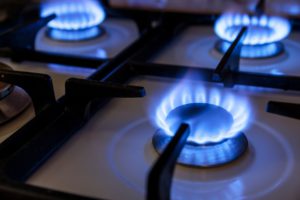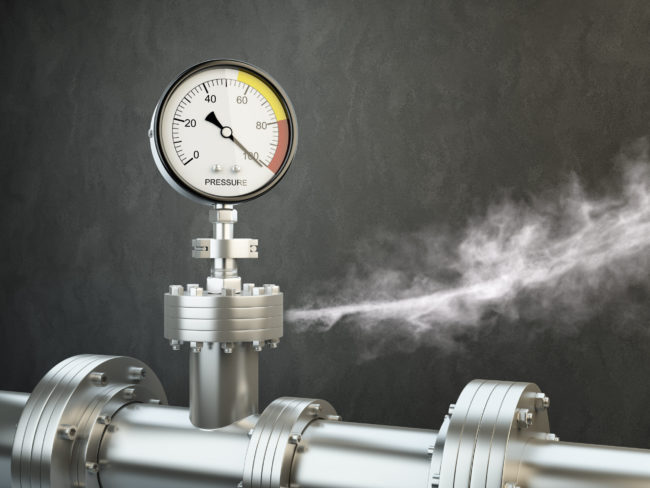Gas hot water service and systems are essential household utilities, providing warm water for showers, cleaning, and cooking. However, being aware of potential gas leaks in these systems is crucial. Ignoring gas leak warning signs can lead to dangerous situations, including fires, explosions, and health risks. In this article, we’ll explore the critical red flags you should always pay attention to when it comes to gas leaks, emphasising the importance of gas hot water system installation and maintenance.
Understanding the Risks of Gas Leaks
Gas leaks are a serious concern because they can lead to life-threatening situations. Gas used in hot water systems is typically natural gas or propane, which are highly flammable and can ignite with a simple spark. Moreover, inhaling these gases in large quantities can cause health problems, including nausea, headaches, dizziness, and even asphyxiation. This is why it’s crucial to recognize the warning signs and act promptly if you suspect a gas leak in your hot water service.
1. The Smell of Rotten Eggs
Rotten eggs or sulphur odour are among the most distinctive and easily recognizable signs of a gas leak. Natural gas and propane are naturally odourless, but gas companies add a mercaptan chemical to give them this unique smell. If you ever catch a whiff of this odour in or around your home, don’t ignore it. It’s a clear indicator that there may be a gas leak.
2. Hissing or Whistling Sounds
Gas leaks can sometimes produce hissing or whistling sounds, especially if the leak is significant. You might hear these noises near your gas hot water system or along gas lines. If you hear any unusual sounds from your hot water service area, immediately turn off the gas supply and contact a professional for inspection and repairs.
3. Dead or Dying Plants
Gas leaks can affect the surrounding environment, including your garden. If you notice that plants, shrubs, or grass near your gas hot water service are wilting, turning yellow, or dying for no apparent reason, it could be a sign of a gas leak contaminating the soil and depriving the vegetation of oxygen.

4. Unexplained Physical Symptoms
Gas leaks can lead to health issues when inhaled over an extended period. If you, your family members, or pets experience symptoms such as headaches, dizziness, nausea, fatigue, or shortness of breath. At the same time, at home, it’s crucial to consider the possibility of a gas leak. Immediate evacuation and professional inspection are necessary if you suspect a leak is the cause.
5. Pilot Light Problems
In gas hot water systems, the pilot light ignites the burner to heat the water. If you notice that the pilot light frequently goes out or has an unusual colour (such as yellow or orange instead of blue), it could indicate an issue with the gas supply. A malfunctioning pilot light can indicate a gas leak or inadequate gas pressure.
6. Higher Gas Bills
A sudden and unexplained increase in your gas bills could be a sign of a gas leak. When there’s a leak in the system, more gas is consumed, causing your utility costs to rise. If you have yet to change your hot water usage or other gas appliances, this financial red flag should prompt further investigation.
7. Bubbles in Soapy Water Test
A practical soapy water test is a DIY test to check for gas leaks. Mix some water with dish soap and apply the solution to the connections and fittings of your gas hot water service and gas lines. If bubbles start to appear, there may be a leak. However, this should only be done as a preliminary check, and you should always consult a professional for a thorough inspection.
The Role of Proper Gas Hot Water System Installation
To reduce the risk of gas leaks in your hot water system, it’s crucial to ensure that it’s installed correctly. Licensed professionals with the necessary expertise should carry out gas hot water system installation and follow safety standards and local regulations.
During installation, professionals will:
- Choose the Right Location: Proper placement of the hot water system is essential to prevent accidents. It ought to be kept away from combustible objects and in a space with adequate ventilation.
- Check for Gas Leaks: Professionals will perform a pressure test before installing the system to ensure no existing gas leaks in the lines.
- Ventilation: Adequate ventilation is essential to dissipate any gas buildup. Professionals will ensure proper venting is in place.
- Secure Connections: All gas connections and fittings must be securely tightened and sealed to prevent leaks.
- Follow Manufacturer Instructions: Professionals will follow the manufacturer’s guidelines for installing the specific hot water system, ensuring proper operation.
Regular Maintenance and Inspection
After installation, regular maintenance and inspection of your gas hot water service are essential to detect and prevent potential gas leaks. This includes:
- Annual Inspections: Schedule yearly inspections by a qualified technician to check for leaks, corrosion, and proper system functioning.
- Replace Old Systems: If your hot water system is ageing and showing signs of wear, consider replacing it with a newer, more efficient model to reduce the risk of leaks.
- Educate Family Members: Ensure everyone in your household knows the signs of gas leaks and what to do in an emergency.
Gas hot water service is essential to our daily lives, but it comes with the potential risk of gas leaks. By being vigilant and recognizing the warning signs, you can take prompt action to ensure the safety of your home and loved ones. Also, proper gas hot water system installation, regular maintenance, and professional inspections are crucial steps in effectively preventing and addressing gas leaks. Don’t ignore these red flags – your safety depends on it.

